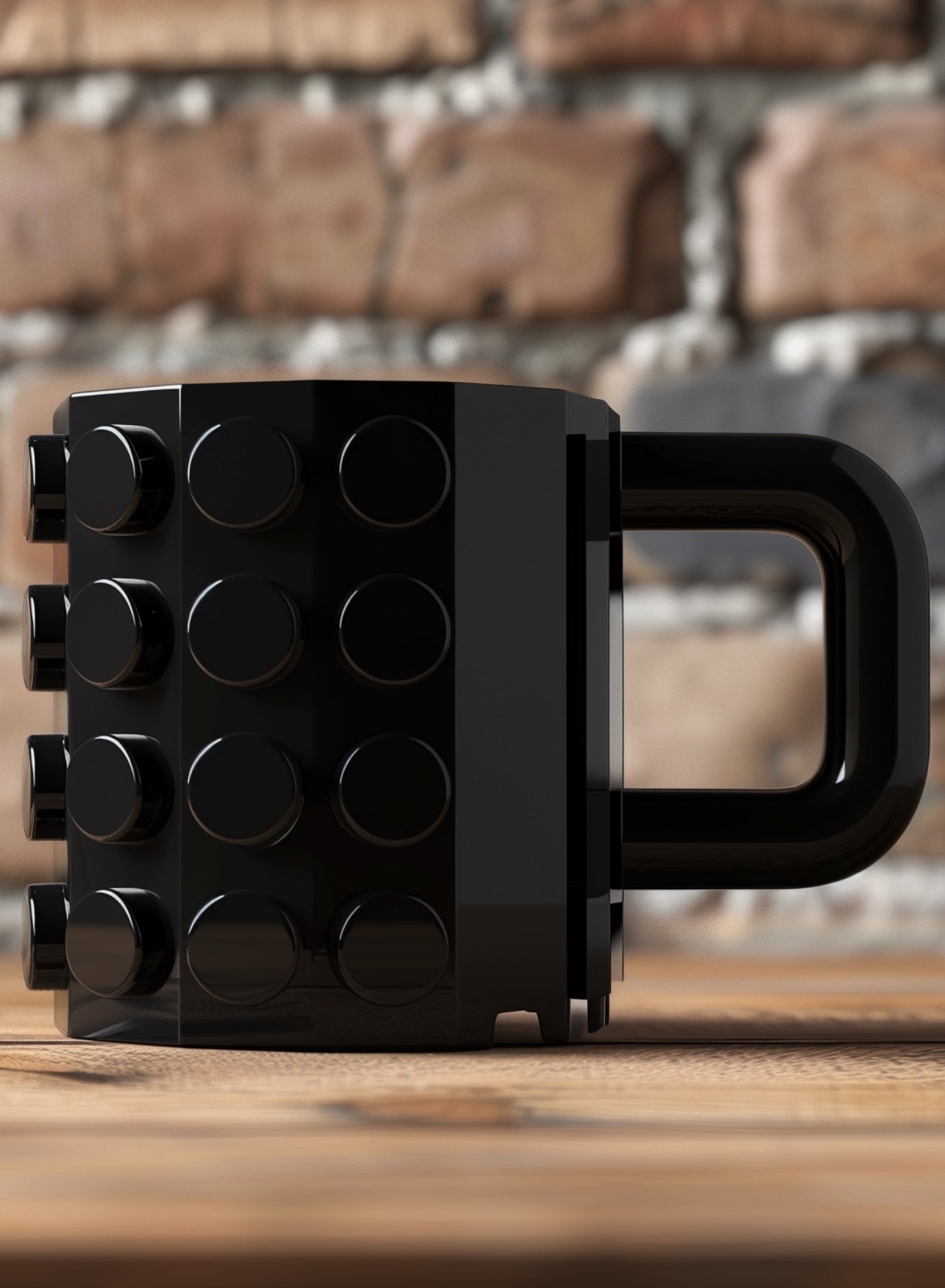Are Stainless Steel Coffee Mugs Safe? Understanding the Health and Safety of Your Beverage Choices
Table of Contents
- Introduction
- What is Stainless Steel?
- Are Stainless Steel Coffee Mugs Safe?
- Comparing Stainless Steel to Other Mug Materials
- Caring for Your Stainless Steel Mugs
- The Environmental Impact of Stainless Steel
- Conclusion
- FAQ
When we think about our daily coffee ritual, many of us might not consider the materials our coffee mugs are made from. Yet, did you know that the material of your coffee mug can significantly impact not only the flavor of your beverage but also your health? As coffee lovers who appreciate the little joys in life, we at Prime Mugs are passionate about ensuring that our drinkware complements your beverage experiences while keeping you safe.
In recent years, the popularity of stainless steel coffee mugs has surged. But with this rise comes a pressing question: Are stainless steel coffee mugs safe? This blog post dives deep into the world of stainless steel mugs, exploring their safety, benefits, and how they compare to other materials. By the end, you'll have a comprehensive understanding of whether these mugs are a suitable choice for your morning brew.
Introduction
Picture this: You’re rushing to get out the door, coffee in hand, ready to tackle the day ahead. For many, the morning cup of coffee is not just a beverage; it’s a ritual that sets the tone for the day. But have you ever stopped to think about what you’re drinking from? The materials that make up your coffee mug are crucial, influencing not just the taste of your drink but also your health.
With the environmental concerns surrounding single-use plastics and the push for sustainability, stainless steel mugs have become a popular option. Their durability and ability to keep beverages hot (or cold) for extended periods are just a couple of reasons behind their growing appeal. However, questions about safety, potential chemical leaching, and overall health implications often arise.
In this blog post, we will explore the composition of stainless steel, the safety of using stainless steel coffee mugs, possible health risks, and how they compare to other materials such as glass and ceramic. Our goal is to provide you with the information you need to make informed decisions about your beverage choices, ensuring that every sip is as safe and enjoyable as possible.
We will delve into the manufacturing process of stainless steel, its properties, potential concerns, and the benefits of choosing high-quality stainless steel mugs. Additionally, we will provide insights into how to care for your stainless steel mugs to ensure they remain in peak condition.
By the end of this post, you will not only understand the safety of stainless steel coffee mugs but also feel empowered to elevate your coffee experience with the right drinkware. Together, let’s explore this essential topic and discover how we can enhance our daily rituals through thoughtful choices.
What is Stainless Steel?
Before we dive into the safety of stainless steel coffee mugs, let’s take a moment to understand what stainless steel is. Stainless steel is an alloy made primarily from iron, carbon, and chromium, which gives it its unique properties. The chromium content is what makes stainless steel resistant to rust and corrosion, providing a long-lasting and durable option for drinkware.
Stainless steel is categorized into several grades based on its composition and intended use. The most common grades used in food and beverage applications are 304 and 316. Grade 304 stainless steel, often referred to as "food-grade," contains 18% chromium and 8% nickel, making it highly resistant to oxidation and suitable for food contact.
Benefits of Stainless Steel
Stainless steel offers several benefits that make it an appealing choice for coffee mugs:
- Durability: Stainless steel mugs are shatterproof and can withstand drops and falls, making them ideal for outdoor activities or daily commutes.
- Temperature Retention: Many stainless steel mugs utilize double-wall insulation, allowing beverages to stay hot or cold for extended periods without transferring heat to the exterior.
- Hygienic: The non-porous surface of stainless steel resists bacteria growth and is easy to clean, ensuring a safe drinking experience.
- Eco-Friendly: Stainless steel is recyclable, making it a more sustainable choice compared to single-use plastic or even some ceramic mugs.
- Lightweight: Despite their durability, stainless steel mugs are often lighter than glass or ceramic options, making them easier to carry.
Are Stainless Steel Coffee Mugs Safe?
This brings us to the central question: Are stainless steel coffee mugs safe? The short answer is yes, but let’s unpack this further.
Chemical Safety
One of the primary concerns regarding the safety of stainless steel is the potential for leaching harmful chemicals into beverages. Unlike plastic mugs, stainless steel is not known to leach chemicals when exposed to heat or acidic beverages, such as coffee. This is due to its inert nature, meaning it does not react with the contents inside the mug.
However, it is vital to ensure that you are using high-quality stainless steel mugs. Lower-quality or poorly manufactured mugs may contain traces of heavy metals or contaminants. At Prime Mugs, we prioritize quality and offer only the best stainless steel products. Our mugs are crafted from food-grade stainless steel, ensuring that no harmful substances leach into your beverage.
BPA and Other Concerns
BPA (Bisphenol A) is a chemical commonly found in plastics that has raised health concerns due to its potential endocrine-disrupting effects. Fortunately, stainless steel does not contain BPA, making it a safer choice compared to plastic mugs, especially for hot beverages.
Another consideration is the lids and components that may come with stainless steel mugs. Some mugs may have plastic lids, which can leach microplastics. To avoid this, we recommend choosing mugs with BPA-free silicone or stainless steel lids for an entirely safe drinking experience.
Temperature Considerations
While stainless steel is excellent for maintaining beverage temperatures, it is essential to be cautious when handling hot liquids. The exterior of certain stainless steel mugs can become hot to the touch, potentially causing burns. To mitigate this risk, many stainless steel mugs feature double-wall insulation or silicone grips, allowing you to enjoy your coffee without the risk of burns.
Comparing Stainless Steel to Other Mug Materials
To fully understand the safety of stainless steel coffee mugs, let’s compare them to other common mug materials: ceramic and glass.
Ceramic Mugs
Ceramic mugs are popular for their aesthetic appeal and ability to retain heat. However, concerns about lead and cadmium in glazes can pose health risks. While most modern ceramics are safe, older or poorly made ceramic mugs may contain harmful substances. Always check for labels indicating they are lead-free and safe for food use.
Pros of Ceramic Mugs:
- Aesthetic versatility and personalization
- Good heat retention
Cons of Ceramic Mugs:
- Can chip or break easily
- Potential for lead or cadmium in glazes
Glass Mugs
Glass mugs are another popular choice, especially for those who enjoy the clarity of their beverage. Like stainless steel, quality glass is non-reactive and does not leach chemicals. However, glass is more fragile, which can be a concern in certain environments.
Pros of Glass Mugs:
- Non-reactive and safe for hot beverages
- Aesthetic appeal, showcasing the drink's color
Cons of Glass Mugs:
- Prone to breaking or chipping
- Can be heavy to carry
Conclusion on Material Safety
In summary, each material has its advantages and disadvantages, but when it comes to safety, high-quality stainless steel stands out. It is durable, non-toxic, and free from harmful chemicals, making it an excellent choice for coffee lovers who value safety and quality in their drinkware.
Caring for Your Stainless Steel Mugs
To ensure the longevity and safety of your stainless steel mugs, proper care is essential. Here are some tips to maintain your mugs:
- Cleaning: Use warm soapy water and a soft cloth or sponge to clean your mug. Avoid abrasive cleaners that can scratch the surface.
- Avoiding High Temperatures: Do not microwave stainless steel mugs, as this can damage the mug and compromise its insulation properties.
- Storing: Store your mugs in a cool, dry place to prevent moisture buildup, which can lead to rust over time.
- Inspecting for Damage: Regularly check your mug for dents or damage, which may compromise its insulation or safety.
At Prime Mugs, we take pride in offering a range of high-quality stainless steel mugs that are easy to care for, ensuring you can enjoy your beverages safely every day. You can explore our Stainless Steel & Thermos Collection to find the perfect mug for your needs.
The Environmental Impact of Stainless Steel
In addition to safety, we should also consider the environmental impact of our choices. Stainless steel is one of the most sustainable materials available for drinkware. It is fully recyclable, and choosing stainless steel over single-use plastics contributes to a reduction in plastic waste.
By investing in high-quality stainless steel mugs, you are not only protecting your health but also doing your part for the environment. We encourage our readers to think about the sustainability of their drinkware choices and explore our Travel Mugs Collection, which features eco-friendly options perfect for on-the-go lifestyles.
Conclusion
In conclusion, stainless steel coffee mugs are a safe and effective option for enjoying your favorite beverages. Their durability, temperature retention, and non-reactive properties make them an excellent choice for coffee lovers. When sourced from reputable brands like Prime Mugs, you can be confident that your stainless steel mug is free from harmful chemicals.
As we move towards a more sustainable future, opting for stainless steel over plastic not only benefits your health but also contributes positively to the environment. By making informed choices about our drinkware, we can enhance our daily rituals while ensuring that every sip is safe and enjoyable.
FAQ
1. Are stainless steel mugs dishwasher safe?
Yes, most stainless steel mugs are dishwasher safe. However, it’s always best to check the manufacturer's instructions to ensure proper care.
2. Can I use acidic drinks in stainless steel mugs?
Yes, stainless steel is resistant to corrosion from acidic drinks. However, it’s wise to rinse your mug after each use to maintain its appearance.
3. Do stainless steel mugs retain flavors?
No, stainless steel does not retain flavors or odors from previous beverages, making it a great option for varied drink preferences.
4. Is there a risk of leaching with stainless steel mugs?
Quality stainless steel mugs made from food-grade materials do not leach harmful chemicals, making them a safe choice for beverages.
5. How do I remove stains from my stainless steel mug?
For tough stains, a mixture of baking soda and water can be effective. Apply it to the stained area and scrub gently with a soft cloth.
6. What’s the best way to store stainless steel mugs?
Store your stainless steel mugs in a cool, dry place to prevent moisture buildup and ensure they remain in good condition.
By prioritizing quality and making informed choices, we can enjoy our beverages while enhancing our daily rituals with the right drinkware. Together, let’s raise our mugs and celebrate the joy that comes with every sip!



